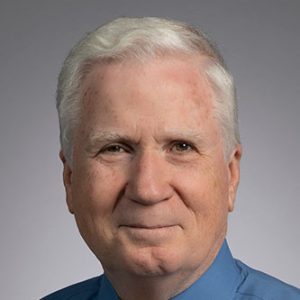
Ph.D.
Professor
Biochemistry - CAFNR // Pediatrics - School of Medicine
State Chemist of Missouri
Director of Agricultural Experiment Station Chemical Laboratories
Director of Chromatography/Mass Spectrometry Facility
Research at a glance
Area(s) of Expertise
Research Summary
Carbohydrates in cancer and bacterial infection; cancer prevention and treatment; host-pathogen interactions in cystic fibrosis; analytical methodologies.
Research in our laboratories focuses on a number of interrelated topics. In the area of exocrine defense mechanisms, with special emphasis on chronic obstructive pulmonary diseases in man, a sizable effort has been trained on developing a better understanding of mucous glycoproteins as a primary and secondary macromolecular defense response against lung pathogens and irritants. Structural elucidation is yielding significant insight into altered post-translational modifications of the side chain oligosaccharides from these molecules. With structural elucidation of respiratory mucins via classical chemical methodology and techniques involving lectins, 500 MHZ 1H-NMR and 13C-NMR, and fast-atom bombardment mass spectrometry (FAB-MS), we have demonstrated significant increases in glycoprotein sulfation and anionicity, that parallel the severity of the respiratory disease and its chronicity. These findings are particularly pronounced in patients with the genetic disorder known as cystic fibrosis.
Ongoing research, with particular emphasis in modified carbohydrates, focuses our analytical capabilities and chemical expertise on the discovery of structure-function relationships, in human and plant health and disease. In-house tools applied include eukaryotic and microbiological cell culture, fluorescence microscopy, polarimetry, optical emission spectrometry (inductively coupled plasma spectrometry, ICP), gas chromatography (GC), high performance liquid chromatography (HPLC), and mass spectrometry (MS). Instruments online this year will include ICP, triple quadrupole GC-MS with mass range capabilities up to 1500 amu, electrospray interfaced LC-ion trap MS with Orbitrap accurate mass detection. Combined with the use of campus facilities for x-ray crystallography, NMR, microarrays, laboratory animal medicine, and electron microscopy, our laboratory and collaborators seek to integrate visual, biological, genetic and chemical data in the discovery process for better understanding human health and disease.
Integrated within the Agriculture Experiment Station Chemical Laboratories, we also strive to improve methods available for compositional analysis of foods, feeds, supplements, fertilizers, and biological specimens.
Educational background
- Ph.D. Molecular Biology and Forensic Pathology, Union University, Albany Medical Center
- B.S. Biochemistry, Fairleigh Dickinson University